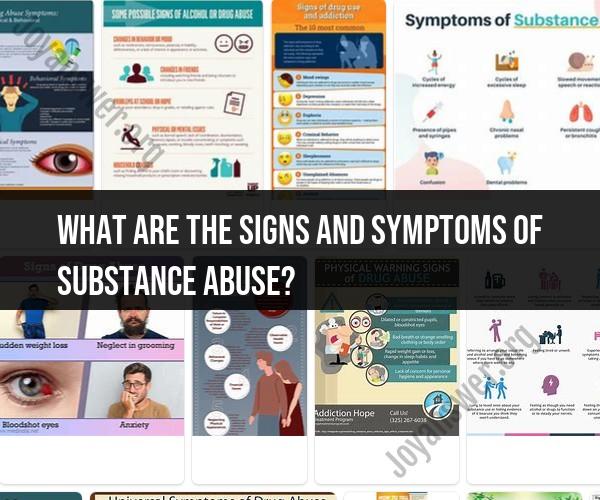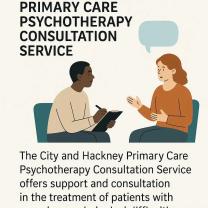What are the signs and symptoms of substance abuse?
Substance abuse, also known as substance use disorder, involves the excessive and harmful use of drugs or alcohol. Recognizing the signs and symptoms of substance abuse can help individuals, families, and healthcare professionals identify and address the problem early. These signs and symptoms can vary depending on the specific substance being abused, but there are common indicators to look out for:
1. Behavioral Signs:
- Loss of Control: An individual may find it challenging to limit their substance use, often taking larger amounts or using the substance for longer periods than intended.
- Neglecting Responsibilities: Substance abuse can lead to a neglect of work, school, or family responsibilities, which can result in poor performance, absenteeism, or unemployment.
- Social Isolation: People with substance abuse issues may withdraw from social activities, hobbies, and relationships that they previously enjoyed.
- Engaging in Risky Behaviors: Individuals under the influence of substances may take risks such as driving while impaired, engaging in unprotected sex, or getting involved in criminal activities.
- Secrecy and Deception: Trying to hide the extent of substance use, lying about it, or being secretive about one's activities can be signs of a problem.
- Loss of Interest: A loss of interest in personal appearance, hygiene, and self-care can be indicative of substance abuse.
2. Physical Signs:
- Tolerance: Over time, the individual may require more of the substance to achieve the desired effect, leading to an increased tolerance.
- Withdrawal Symptoms: When not using the substance, withdrawal symptoms such as nausea, sweating, anxiety, and irritability may occur.
- Changes in Appetite and Sleep: Substance abuse can result in changes in appetite, weight loss or gain, and disturbances in sleep patterns.
- Health Issues: Physical health problems related to substance abuse may include chronic illnesses, infections, and deterioration of overall health.
- Neglected Appearance: Poor personal grooming, unexplained injuries, and physical deterioration are common signs.
3. Psychological Signs:
- Mood Swings: Frequent and extreme mood swings, including irritability, anger, depression, or anxiety, can be indicative of substance abuse.
- Cravings: Strong and persistent cravings for the substance can disrupt daily life and lead to obsessive thoughts about obtaining and using it.
- Mental Health Issues: Substance abuse can exacerbate or lead to mental health disorders such as depression, anxiety, and psychosis.
- Loss of Motivation: Decreased motivation, apathy, and a lack of interest in previously important goals and activities can occur.
- Poor Decision-Making: Impaired judgment and decision-making, often leading to risky behaviors, are common in substance abuse.
4. Social Signs:
- Changes in Social Circle: A shift in friends and social contacts towards those who also use substances is common.
- Relationship Problems: Substance abuse can lead to conflicts, strained relationships, and the breakdown of familial and social bonds.
- Financial Issues: Financial difficulties, including borrowing money, spending excessively on substances, or selling personal belongings to support the habit, may arise.
5. Legal and Financial Consequences:
- Legal Problems: Involvement in illegal activities related to obtaining or using the substance can lead to legal issues and arrests.
- Financial Strain: The cost of purchasing drugs or alcohol can result in financial hardship and debt.
6. Neglect of Responsibilities:
- Work or School Issues: Decreased performance, frequent absences, or job loss may occur due to substance abuse.
It's important to note that the severity and combination of these signs can vary widely among individuals. If you or someone you know is exhibiting signs of substance abuse, it's crucial to seek help from healthcare professionals, counselors, or support groups. Substance abuse is a treatable condition, and early intervention can lead to successful recovery.












